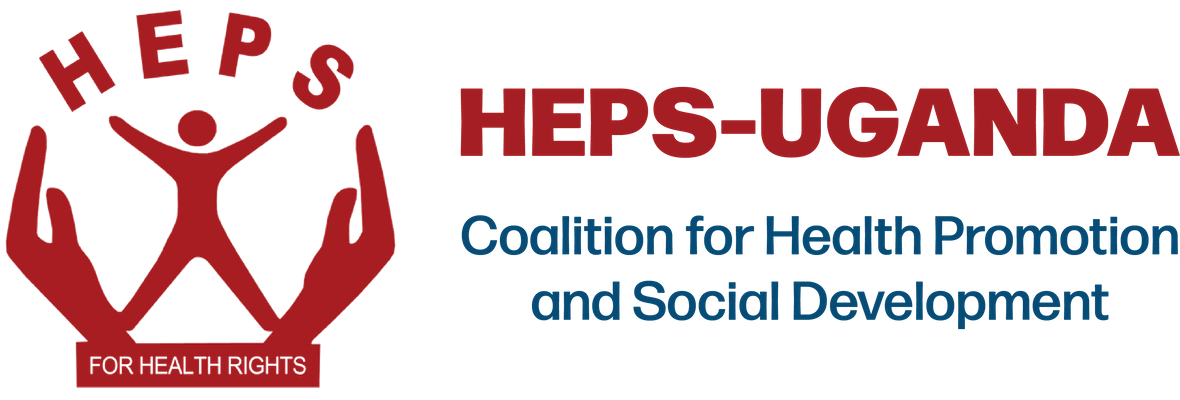Civil Society Organizations (CSOs) in Uganda want an improvement in access to oxygen by harmonizing the coordination framework at the national level to scale up oxygen supply and use, as well as systemic provision of information on areas where oxygen therapy can be accessed.
The CSO’s demand comes at a time when the country is battling the second wave of the covid-19 pandemic.
On June 9, 2021, the Daily Monitor (one of Uganda’s daily Newspapers), reported that 10 patients had succumbed to COVID-19 at Soroti Hospital (Eastern Uganda) due to lack of oxygen. The same (shortage of Oxygen) has been reported in other various areas, but also there have been reports of health workers being arrested over alleged theft of oxygen cylinders from some hospitals.
During a Press Conference on Wednesday (June 17, 2021), in Kampala, the civil society organizations noted that research indicates that access to Oxygen in Uganda has been problematic in the past.
“Most hospitals have some oxygen supply; however, these hospitals continue to struggle with various challenges such as dependable delivery and effective use of oxygen. These gaps are further exacerbated by shortfalls in healthcare provider training demonstrated by the lack of skills in some aspects of oxygen delivery such as skills in pulse oximetry. This context has an impact on the availability, accessibility, acceptability and overall quality of Oxygen in the country,” they observed in a joint press statement signed by Action Group for Health Human Rights & HIV/AIDS (AGHA), African Institute for Investigative Journalism (AIIJ), Action for Rural Women’s Empowerment (ARUWE), Center for Health, Human Rights and Development (CEHURD), Coalition for Health Promotion and Social and Development (HEPS-Uganda), Reach A Hand Uganda (RAHU), and Uganda National Health Consumers’ Organization (UNHCO).
The CSOs also observed that there are currently, no official reports that point to the extent of oxygen access during the Covid-19 pandemic, but media monitoring reports from 2020 paint a very worrying picture in terms of the quality of oxygen patients received, supply shortage, and poor accessibility for oxygen
Addressing the press conference, Fatia Kiyange, the Deputy Executive Director – CEHURD said that “As civil society, we are concerned about the reports on these issues which undoubtedly have an impact on the right to health. The situation is indeed worrying especially following the second wave of COVI-19. It is especially worrying for the indigent who cannot afford oxygen therapy and these constitute the vast majority of Ugandans.”
Kenneth Mwehonge, the Program Manager – Health Policy Advocacy at HEPS-Uganda during the same press conference observed that oxygen shortage is now an emergency issue in Uganda that should be handled immediately to save lives.
Information Access Still a Challenge
The CSOs also raised a concern about access to information on oxygen therapy. They observed that whereas access to information on health care is crucial for the realization of the right to health, the response to the pandemic so far seems to indicate abandonment in the provision of information specifically about vaccination and now about centers where Ugandans can access oxygen therapy.
“I know people who are now moving from one district to another looking for oxygen therapy. This is dangerous because they are unknowingly spreading the virus. They do this because they do not know where to access the oxygen from,” Kiyange said
On her part, Yvonne Mpambara, the RAHU senior policy advocacy officer said that “Information on Oxygen should be made available and broken down to different audiences like the children and adults, to reduce trauma and fear on use of oxygen cylinders.”-
Plan to Increase Medical Oxygen Availability
At the country policy level, Uganda enacted the National Scale-up of Medical Oxygen Implementation Plan 2018-2022.
The Plan aims to increase the availability and utilization of oxygen in higher-level facilities along with four main objectives namely: providing a national strategic framework to guide scale-up of oxygen supply and utilization, securing maintenance and replacement of oxygen therapy and diagnostic equipment through the regional workshops and the National Medical Store; providing a framework for the training of staff in health facilities on rational use of oxygen and basic maintenance of equipment as well as providing an advocacy instrument to secure funding to support oxygen scale up interventions.
The Plan was projected to cost an estimated investment of USD4.3M in the initial year of 2018 and annual costs of USD1.5M per year thereafter.
However, previously, an uneven electricity distribution, malfunctioning oxygen cylinders, limited access to pulse oximetry, inadequate staffing as well as lack of continued professional training has been cited as the biggest impediment to access to oxygen.
Oxygen Shortage: One of the Many Health System Challenges
The Oxygen shortage exists amidst many other health system challenges. Today, Health workers in Uganda are overstretched, there is a failure to observe the Ministry of Health’s recommended Standard Operating Procedures including within health facilities, scarcity of hospital beds, and lack of the right information to guide the general public on COVID-19 management.
Lack of information has made the public resort to using local herbs and other interventions to overcome covid-19 and no one is regulating this, exposing the public to more health dangers. These issues should not be ignored even as efforts are made to improve access to oxygen.
To avert a potential health crisis due to oxygen stockout, the CSOs also recommended an increase in funding for the health sector and tax exemption for different medical oxygen manufacturing plants across the country to stimulate more production and supply.
Read full press statement from https://heps.or.ug/file-download/download/public/465






